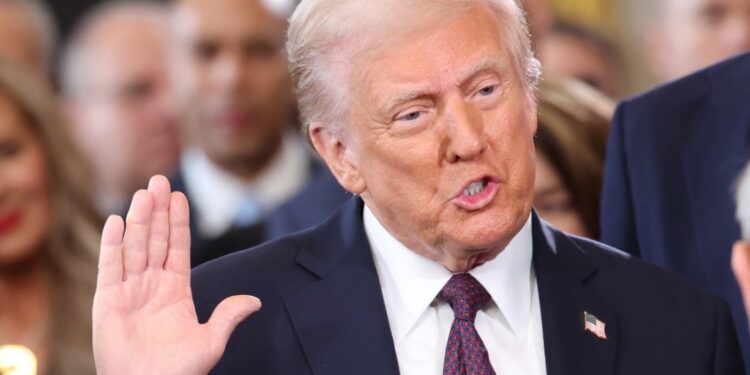United States President Donald Trump has signed an executive order aiming to end birthright citizenship, a constitutional right upheld by the US Supreme Court for over 125 years.
The controversial order, issued on Monday as part of a series of executive actions to reshape federal immigration and border policies, has already sparked widespread criticism and legal challenges. Trump defended the move, citing his duty as commander in chief to protect the country from what he described as “threats and invasions.”
“As commander in chief, I have no higher responsibility than to defend our country from threats and invasions, and that is what I’m going to do,” Trump stated during his address.
For decades, the US government has interpreted the 14th Amendment of the Constitution to mean that anyone born on American soil is granted citizenship at birth, regardless of their parents’ immigration status. The 14th Amendment explicitly states: “All persons born or naturalised in the United States, and subject to the jurisdiction thereof, are citizens of the United States and of the State wherein they reside.”
Under Trump’s directive, federal agencies are instructed to stop issuing citizenship-related documents, such as passports and certificates, to children born in the US under specific conditions. This includes children born to mothers who are undocumented immigrants or temporary visa holders if the fathers are also not US citizens or legal permanent residents.
The order, which is not retroactive, is set to take effect in 30 days. However, it has already faced a lawsuit filed by the American Civil Liberties Union (ACLU) and other advocacy groups, challenging its constitutionality.
Trump also invoked extraordinary presidential powers to suspend US asylum laws, accusing migrants at the southern border of staging an “invasion” that threatens public health and safety. The executive order grants officials the authority to “repel, repatriate, or remove” migrants, effectively halting the enforcement of asylum laws until the president determines that the so-called “invasion” has ceased.
This sweeping measure has intensified debates on immigration policy and is expected to undergo a lengthy legal battle in the courts. Critics argue that the executive order violates the Constitution and undermines long-established legal protections for individuals born on US soil.
























